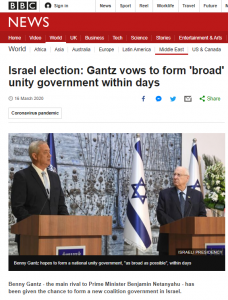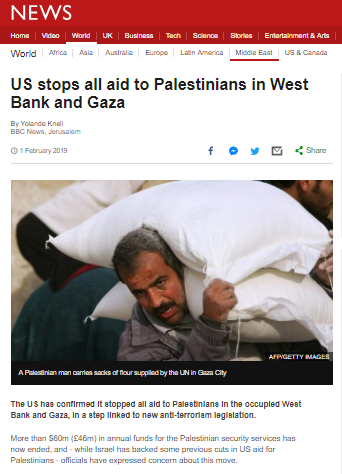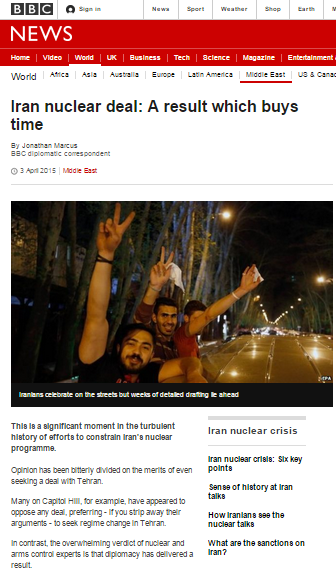1) As has been noted here before, the BBC is still unsure about Iranian involvement in the conflict in Yemen. The Washington Post recently published an article titled “How Iranian weapons are ending up in Yemen“.
“Weapon shipments intercepted in the Arabian sea by Australian, French and U.S. warships this year contained large quantities of Russian and Iranian weapons, some of which had markings similar to munitions recovered from Houthi fighters in Yemen, according to a new report released by an independent research group Wednesday.
In October, U.S. officials claimed to have captured five shipments of Iranian weapons bound for Yemen. The report, published by Conflict Armament Research, or CAR, draws on markings found on rifles, rocket launchers, anti-tank guided missiles and munitions, providing some of the more concrete evidence to date of Iran’s logistical support to Houthis fighting in Yemen’s nearly two-year-old civil war.”
2) Professor Eugene Kontorovich has compiled “A Global Study of Settlements in Occupied Territories“.
“This Article provides the first comprehensive, global examination of state and international practice bearing on Article 49(6) of the Fourth Geneva Convention, which provides that an “Occupying Power shall not deport or transfer parts of its own civilian population into the territory it occupies.” This provision is a staple of legal and diplomatic international discussions of the Arab-Israeli conflict, and serves as the basis for criticism of Israeli settlement policy.
Despite its frequent invocation in the Israeli context, scholars have never examined – or even considered – how the norm has been interpreted and applied in any other occupation context in the post-WWII era. For example, the International Committee of the Red Cross’s (ICRC) influential Study on Customary International Humanitarian Law lists 107 instances of national practice and UN practice applying or interpreting the prohibition, and all but two relate to Israel. Many questions exist about the scope and application of Art. 49(6)’s prohibition on “transfer,” but they have generally been answered on purely theoretically.”
3) MEMRI gives a comprehensive overview of the Abbas-Dahlan power struggle.
“A recent focus in the Palestinian press has been the power struggle between Palestinian Authority (PA) President and Fatah chairman Mahmoud ‘Abbas and former Fatah Central Committee member Muhammad Dahlan, who was expelled from the movement in 2011 and is currently attempting to influence the Palestinian agenda and to empower his supporters in the face of ‘Abbas’s steps to exclude him from the Palestinian political scene.
Dahlan has been demonstrating his strength in a number of ways: in the West Bank and the Gaza Strip through conferences and protests organized by his supporters there, and also through efforts to strengthen ties between Egypt and the Gaza Strip; and in the Palestinian diaspora with conferences organized by his supporters in Lebanese refugee camps and in Europe. At the same time, ‘Abbas is trying with all his might to completely exclude Dahlan and his supporters from Fatah, and to end the ongoing internal conflict in the movement with an institutional resolution to be approved at the Seventh Fatah Conference, which is set for November 29, 2016.
The escalation in the power struggle between ‘Abbas and Dahlan is linked to the debate on the future of the Palestinian leadership, particularly the question of who ‘Abbas’s successor will be. This latter issue goes beyond the Palestinian discourse, in light of efforts by the Arab Quartet (Egypt, Saudi Arabia, Jordan and the UAE), and especially by Egypt, to influence the composition of the Palestinian leadership by including Dahlan in it and by grooming him to succeed ‘Abbas as Fatah chairman and Palestinian president. On October 6, 2016, the debate over ‘Abbas’s successor became more urgent after the 82-year-old ‘Abbas was rushed to the hospital for a cardiac catheterization.”




